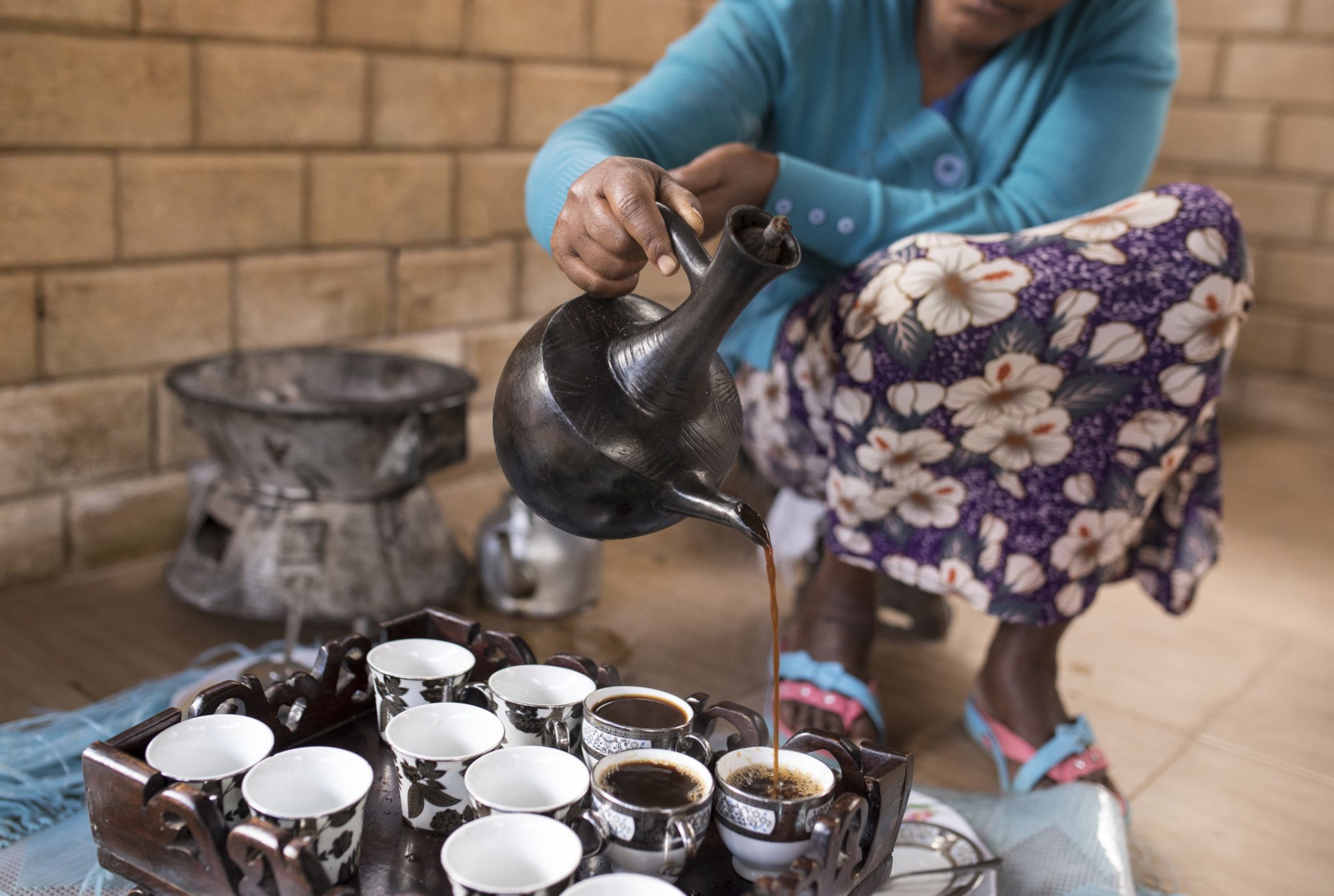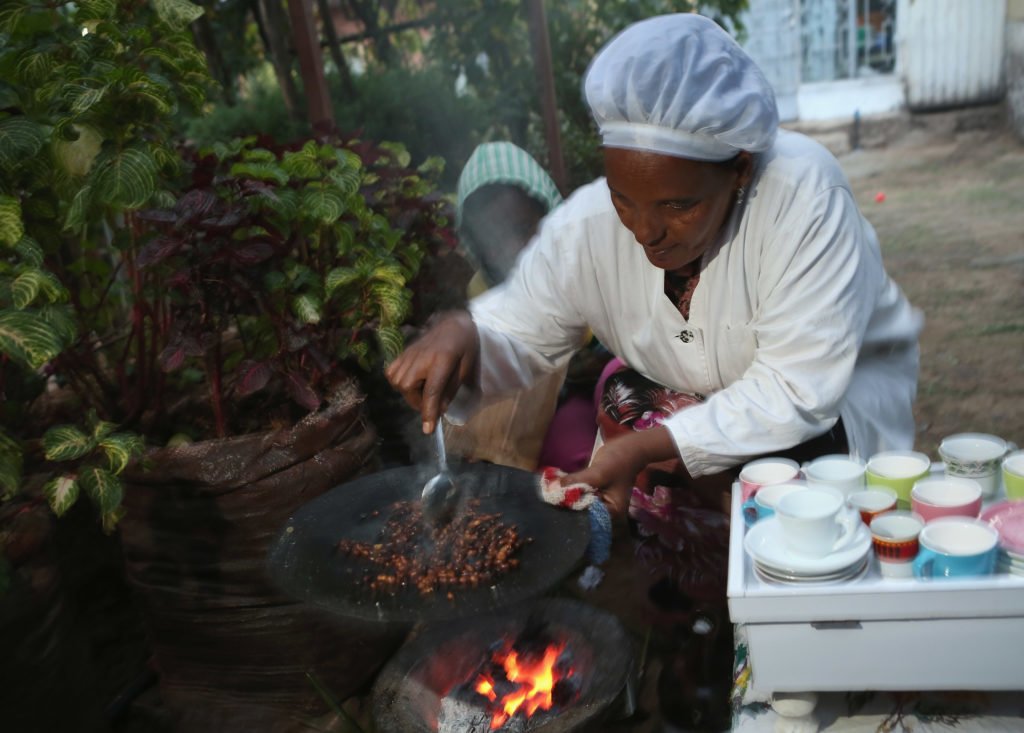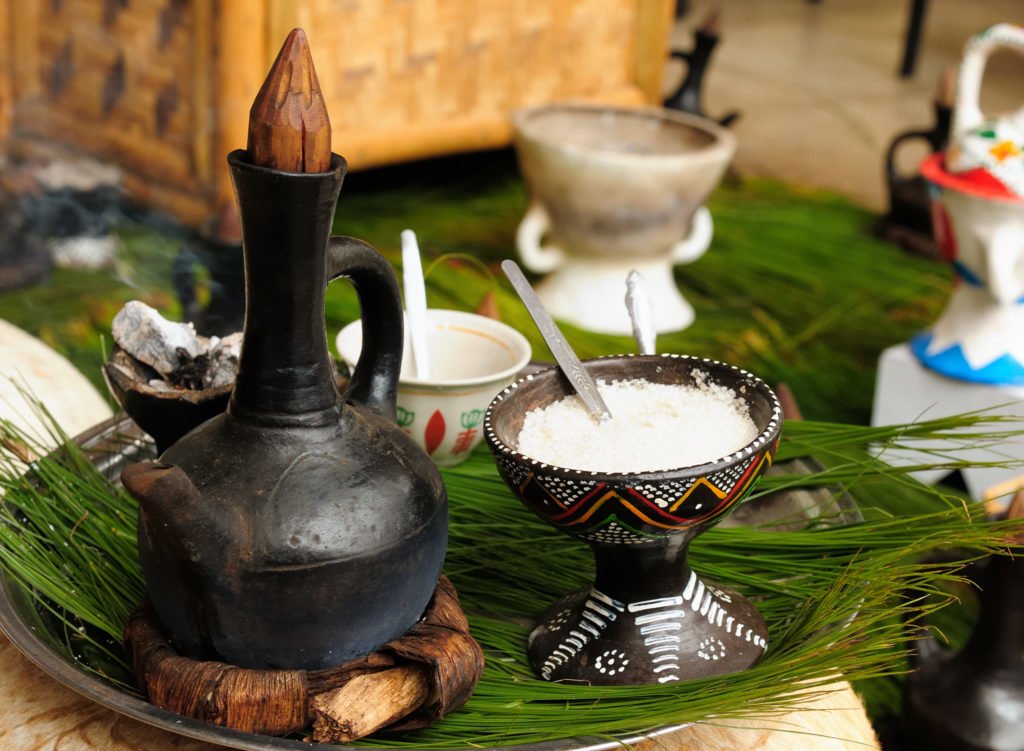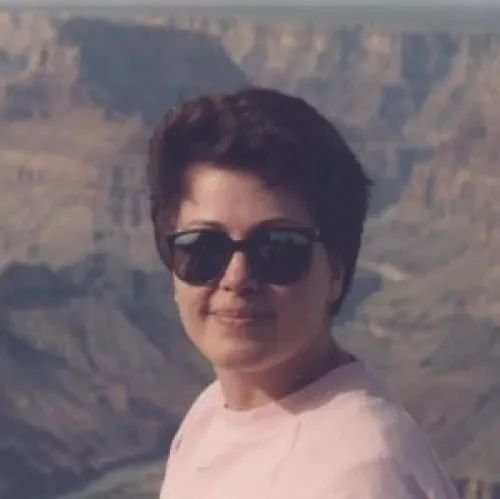
Closeup of Ethiopian womans hands as she pours coffee in Ethiopian coffee ceremony.
Known as the birthplace of the coffee bean, Ethiopia is struggling to keep its coffee farmers from calling it quits. With global coffee prices close to a 13-year low, Ethiopian growers are earning less than a penny a cup, according to journalists Aaron Maasho and Nigel Hunt.
While coffee consumption is up in the West, driven by the under-40 demographic and with a new high of 61 percent reached in the 2019 share of gourmet coffee consumed, that wealth is not reaching Ethiopian farmers. One of the problems they face, explained Maasho and Hunt, is that “most of their coffee is exported in bulk as green, unroasted beans, with most of the processes that add the greatest value taking place afterwards in the countries that consume the coffee.”
Journalist Lynsey Chutel has an idea that will direct some of the cashflow back to the country that started it all. Instead of merely exporting its coffee beans, she said that exporting the country’s coffee culture will help bolster its economy. International consumers are willing to pay for authentic experiences, she writes, and commercializing the Ethiopian coffee ceremony “would give Ethiopians a greater stake in a global industry they already contribute to.”

Kedega Srage was born and raised in Ethiopia’s capital, Addis Ababa, and now owns the Bunna Cafe in Brooklyn. She said that the Ethiopian coffee ceremony, called the jebena buna, is “all about sharing, inviting new people to your place — friends, family or neighbors. That’s why it takes at least an hour (or more).”
The actual process of making the coffee is straightforward enough: washed beans are pan-roasted, usually over open flames or charcoal, and then ground into powder using a mortar and pestle. When the water in the traditional clay pot (called a jebena) comes to a boil, the ground coffee is added to boil for a few more minutes. Strained and sometimes enhanced with spices and sprigs of rue, it’s finally ready.
There are three servings in the ceremony. Each has a name: Abol, Tona, and Baraka. After the first round is poured into handleless cups, water is added to the jebena and brought back to a boil. By the third serving, the coffee is nicely diluted from its original thick espresso. The coffee is poured into the tiny cups from quite a height to help keep most of the grounds at the bottom of the jebena.

There is also a spiritual component to the ceremony. An observer may not even be aware of the prayers being offered by the person preparing the coffee, but the last round is said to confer a blessing. As a ceremony participant, there are expectations.
“Once the drinking begins, you should contribute to the general discussion and banter expected at the ceremony,” explained the team at Demand Africa. “The aim of the coffee ceremony in the first place is to create an atmosphere of fun and conviviality.”
And it’s that whole experience, centered around coffee but including everything that makes us human — relationships, laughter, spirituality, conversation — that, if successfully packaged and exported, could be Ethiopia’s economic savior.
Don’t forget to check out Coffee or Die’s new YouTube channel for even more premium content!

Stephanie Olsen is a freelance writer and copy writer based in Toronto. She’s usually dreaming of somewhere warm and is currently disputing whether it’s more exciting to see your name in print for the first time or have an online piece of content you’ve created go viral.
BRCC and Bad Moon Print Press team up for an exclusive, limited-edition T-shirt design!
BRCC partners with Team Room Design for an exclusive T-shirt release!
Thirty Seconds Out has partnered with BRCC for an exclusive shirt design invoking the God of Winter.
Lucas O'Hara of Grizzly Forge has teamed up with BRCC for a badass, exclusive Shirt Club T-shirt design featuring his most popular knife and tiomahawk.
Coffee or Die sits down with one of the graphic designers behind Black Rifle Coffee's signature look and vibe.
Biden will award the Medal of Honor to a Vietnam War Army helicopter pilot who risked his life to save a reconnaissance team from almost certain death.
Ever wonder how much Jack Mandaville would f*ck sh*t up if he went back in time? The American Revolution didn't even see him coming.
A nearly 200-year-old West Point time capsule that at first appeared to yield little more than dust contains hidden treasure, the US Military Academy said.












